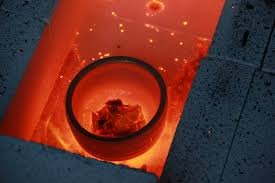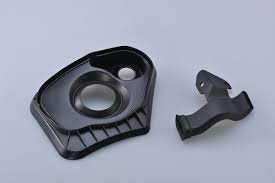The Benefits of Using Heat Transfer Fluids in Your Operations
Heat transfer fluids are essential for optimizing industrial processes through effective temperature management. Thermal fluid systems are vital across various sectors, including chemical manufacturing and food processing. This blog delves into how these systems improve operational efficiency and safety while also offering the potential for cost reduction.
Enhanced Energy Efficiency
Thermal fluid systems are engineered to deliver exceptional heat transfer capabilities, resulting in substantial energy savings. The key advantages include:
- Consistent Temperature Control: Thermal fluids maintain uniform temperature throughout the system, ensuring optimal conditions for various industrial processes.
- Reduced Energy Consumption: By improving heat transfer efficiency, these systems minimize energy wastage, leading to lower utility bills and reduced environmental impact.
- Long Service Life: Heat transfer fluids are formulated to resist thermal degradation, which can extend the life of both the fluid and the equipment. Hamro Solar LLC
Operational Advantages
Implementing thermal fluid systems in industrial operations can streamline processes and boost productivity due to their operational flexibility and reliability. Important advantages include:
- Wide Operating Range: Thermal fluids can operate at high temperatures without the need for high pressures, which simplifies system design and increases safety.
- Minimal Maintenance: These systems generally require less upkeep than steam-based systems, as they do not have issues like boiler scale or corrosion.
- Versatility: Heat transfer fluids can be used in a wide variety of applications, from plastic production to solar power plants, making them adaptable to many industrial needs.
Safety and Environmental Benefits
Safety is paramount in any industrial setting, and thermal fluid systems offer several inherent safety and environmental benefits:
- Lower Operating Pressure: Unlike steam systems that operate under high pressure, thermal fluid systems typically work at atmospheric pressure, significantly reducing the risk of explosions.
- Reduced Environmental Impact: Many modern heat transfer fluids are engineered to be non-toxic and biodegradable, minimizing environmental pollution in case of leaks.
- Enhanced Workplace Safety: The closed nature of thermal fluid systems limits worker exposure to hot surfaces or fluids, reducing the risk of burns and other injuries.
Cost-Effectiveness
While the initial setup cost for a thermal fluid system may be higher than some alternatives, the long-term savings and operational benefits justify the investment:
- Decreased Downtime: The reliability of thermal fluid systems leads to fewer shutdowns for maintenance, thus avoiding costly interruptions.
- Longevity of Equipment: The gentle operating conditions in these systems can extend the life of equipment, reducing the frequency and cost of replacements.
- Scalability: As business needs grow, thermal fluid systems can be easily scaled to meet increased demand without substantial additional investment.
Choosing the Right Heat Transfer Fluid and System
Selecting the appropriate heat transfer fluid and system design is critical to achieving the best performance and cost-efficiency:
- Fluid Selection: Factors to consider include thermal capacity, flash point, and thermal stability. Consulting with experts can help tailor the fluid properties to specific industrial requirements.
- System Design: Proper design ensures maximum efficiency and safety. It’s important to work with experienced engineers who can customize the system to fit the specific needs of your operation.
Conclusion
Thermal fluid systems offer a host of advantages that greatly enhance the efficiency, safety, and cost-effectiveness of industrial operations across various sectors. These sophisticated systems are engineered to maintain precise temperature control, ensuring smooth and consistent processes, which is crucial for quality assurance in manufacturing. Furthermore, they can operate safely at elevated temperatures, making them an ideal choice for industries such as petrochemicals, pharmaceuticals, and food processing, where effective temperature management is essential.
Investing in thermal fluid systems not only optimizes energy consumption but also promotes a sustainable operational model by minimizing waste and boosting overall productivity. By increasing production capacity, these systems enable businesses to meet rising market demands while simultaneously reducing operational risks associated with overheating or equipment failure.






